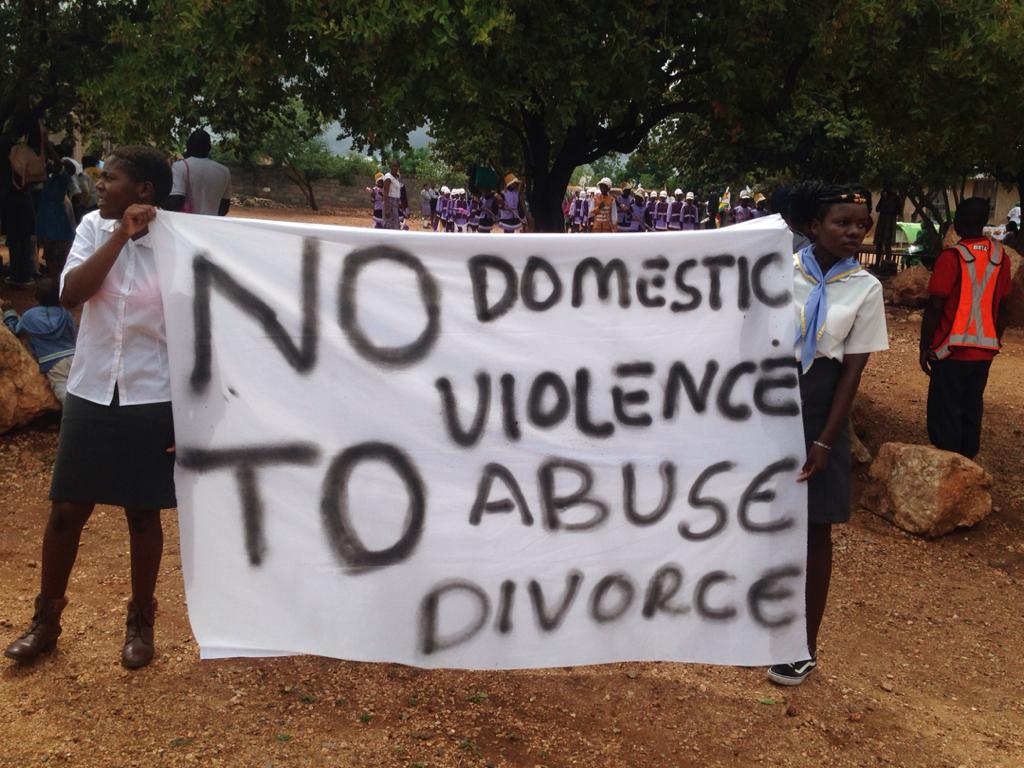The Seventh Day Adventist Church (SDA) has embarked on anti-domestic violence drive in high density suburbs of Bulawayo amid an increase in cases.
The church held a campaign in Sizinda on Sunday, to educate and encourage residents to speak out against domestic violence.
The march saw church members partnering with the police, members of the community and schoolchildren telling residents about the harmful effects of domestic abuse.
Speaking at the campaign initiative, Pastor Andile Hlongwane, confirmed the church had handled a number of disturbing reports concerning domestic violence.
“The church has also observed that a lot of people are suffering from the abuse, informing our decision to do this campaign. We have women who are part of our congregation bearing scars and when we approach them, they disclose what would have happened. Just this Saturday, we were dealing with another case where a pregnant woman was beaten and had be admitted to Mpilo Hospital.”
Pastor Andile Hlongwane.
Pastor Hlongwane said the anti-domestic violence drive was the church’s first campaign and hoped the institution would be a centre of influence in the community.
“Domestic abuse has to stop taking place in our homes. We must not beat each other but have faith, hope and trust in Jesus Christ, most importantly we must love each other and our children. The challenge is a lot of mistreatment takes place in homes and marriages while victims choose to be silent. At the end of the day, victims end up feeling anxious, despair, guilt and shame while the aggressor rarely changes in spite of their promises, as they suffer from low self-esteem, compensating this need by intimidating and hitting their spouses or children.”
Pastor Andile Hlongwane.
He added a peaceful community required everyone to play their part and assist others in finding peace.
“It is everyone’s role in a community to make peace. A community built by all – from the young to the elderly and once there is respect there is peace in the community,” Pastor Hlongwane said.
Gladys Nyathi from the church’s Family Life Department concurred and encouraged victims to seek advice, help and counselling.
“There is too much abuse in our communities, people are fighting and this violence emanates in many forms. There is emotional abuse where partners speak in rough terms to others leaving them wounded emotionally while in financial abuse, some withhold money and especially women struggle to fend and feed the children, which is bad under this harsh economy.
“Children are also abused or raped but families don’t tend to speak out but we want to encourage residents to speak, report such incidents and seek counseling. As a church, we offer counselling and prayer depending on the needs of one seeking help,” she said.
Remarking on behalf of the children, 12-year-old, Alethia Ngwenya who was consented to speak publicly said young children were “very much affected by domestic violence, which had a negative impact on their growth and social interaction.”
Sergeant Prince Ndlovu from Victim friendly Unit at Tshabalala Police Station encouraged residents, especially women to report cases of abuse and not withdraw the charges.
He said when a case was reported it had to be investigated before heading to court for finalisation, but sometimes victims dropped charges before justice was enabled.
“Sometimes when a woman is beaten, the man’s family including the woman’s, mostly female relatives, descend at the police station and urge her to drop the case against her partner,” he lamented but noted that “when men reported cases they were not easily influenced to drop them as they wanted them to proceed to court.”
Sergeant Prince Ndlovu.
He said dropping the charges defeated the course of justice as the aggressor would continue with their abuse.
“Sometimes as police when we make follow ups to the address we would be given, the couple in question would have moved away.”
Sergeant Ndlovu also educated the crowd on the difference between a protection order and a peace order.
“A protection order is issued under the Domestic Violence Act while a peace order issued from a different court and is used against any other person who is bothering you. The law is equal and does not favour women more than men,” he said.

